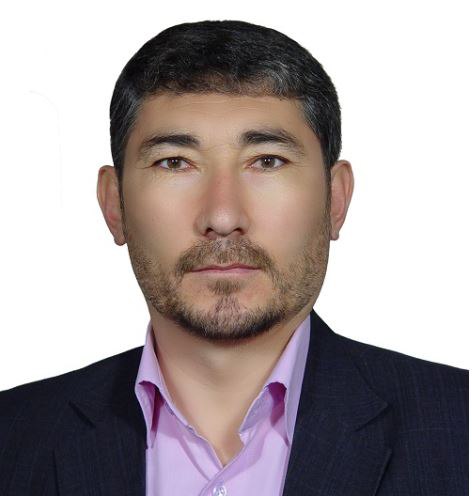The process of continuous and rapid transformation at the beginning of the third millennium AD is one of the most important currents governing human life and one of its most prominent characteristics. The empowerment and capacity building of human resources, which is considered as the basis and platform for change and development and progress in the organization, plays a very valuable, fundamental and decisive role in this regard. Providing the right conditions and platform for improving the capacity and professional development also provides the field of “creativity” and “entrepreneurship” of human resources.
Name and Surname: Mohammad Ishaq Mahdawi
Year and place of birth: 1969, Ghazni province, Qarabagh district
Field of study: Islamic economics
Degree: Ph.D.
Organizational position: Professional Development Directorate

- PhD in Islamic Economics from Al-Mustafa Al-Alamiya Society
- The four levels of jurisprudence and principles of Al-Mustafa society
- Master of Educational Sciences from Al-Mustafa Al-Alamiya Community of Qom
- Master of Economics with a focus on development from the Imam Khomeini Educational and Research Institute of Qom
- Bachelor of Management from Imam Khomeini Institute of Education and Research, Qom
|
Title |
Place |
Date |
Description |
|
The responsible director of Emmett Quarterly |
Iran |
For 6 years |
In alternate years |
|
Editor-in-Chief of Negah Quarterly |
Iran |
One year |
2009 |
|
Executive Secretary of Emmet Quarterly |
// |
three years |
2002-2005 |
|
Executive Secretary of Andisheh Farda Quarterly |
// |
four years |
2003-2007 |
|
Executive Secretary of Women’s Conference in Afghanistan |
Iran and Afghanistan |
three years |
2008-2010 |
|
The Executive Officer of the Educational and Scientific Seminar of Education |
Ghazni province |
four months |
2003 |
|
The head of one of the research groups of Qadr Institute |
Qom |
2008 |
Iran’s fifth development plan |
|
Secretary and head of Wali-asr Scientific and Cultural Assembly |
// |
2007 |
One year |
|
Responsible and manager of the site of Vali- asr Scientific and Cultural Forum |
Iran and Afghanistan |
2007 |
for three years |
|
Member of the Central Council of the Qom Resident Ethics and Education Association |
// |
2009 |
One year |
|
Member of the Economics and Management Association of students residing in Qom |
Iran |
eight years |
It is going on now |
|
Professor and the academic board of “Kateb” University |
Afghanistan |
3 years |
2010-2012 |
|
Head of the Department of Economics (Director of the Department of Economics) Kateb University |
// |
1 year |
2010 |
|
Administrative Assistant of “Kateb” University |
// |
two years |
2011-2012 |
|
Professor and the academic board of Khatam -AI-Nabieen University (PBUH) |
// |
3 years |
2012-215 |
|
Financial Administrative Assistant of Khatam- Al- Nabieen University (PBUH) |
// |
3 years |
2012-215 |
|
Head of the President’s Office of Khatam Al-Nabieen University (PBUH) |
// |
One year |
2017-2018 |
|
Cultural and Communication Officer of Khatam -Al-Nabieen University (PBUH) |
// |
six months |
2018 |
|
Dean of the Faculty of Economics of Khatam -Al-Nabieen University (PBUH) |
// |
two years and half |
2018-2021 |
|
Internal manager of Al-Mustafa International University of Kabul |
// |
One year |
2022 |
|
Director of Professional Development of Khatam -Al-Nabieen University (PBUH) |
// |
The current year |
2023 |
|
Name of work |
Journal |
Publishing organization |
print year |
considerations |
|
Belief in destiny |
Andisheh Farda Quarterly |
Fundamental Research Institute |
2005 |
|
|
Investment security |
Ministry of Planning and Budget |
Qadr Institute |
2008 |
Group research work |
|
Competitive market solutions |
// |
// |
// |
// |
|
Usury, challenges and solutions |
Imam Khomeini Institute |
Research work for Imam Khomeini Institute |
2006 |
|
|
Friedman’s quantity theory and Keynesian economics |
Friedman on Quantity Theory and Keynesian Economics |
Translation Unit of Imam Khomeini Institute |
2007 |
Translation of the article by D. patinkan |
|
Polion school |
|
Translation Unit of Imam Khomeini Institute |
2007 |
article translation |
|
Family economy, challenges and solutions |
Imam Khomeini Research Unit |
Scientific seminar |
2008 |
|
|
Tax management from Imam Ali’s point of view |
Emmett Quarterly |
Vali asr Scientific and Cultural Assembly |
2005 |
|
|
Hazrat Khizr’s economic decision making |
researcher |
Imam Khomeini Institute |
1986 |
|
|
The National Council and its role in the economy of Afghanistan |
Emmett Quarterly |
Vali asr Scientific and Cultural Assembly |
2011 |
|
|
Economy of agriculture and livestock and nomads |
nomadic conference |
Afoq Navin Assembly |
2011 |
Researches |
|
Educational effectiveness of employees |
Andisheh Farda Quarterly |
Fundamental Research Institute |
2006 |
|
|
The ethics of brokers from Imam Ali’s point of view |
Emmett Quarterly |
Vali asr Scientific and Cultural Assembly |
2004 |
|
|
Command management from Imam Ali’s point of view |
Shamim’s monthly magazine |
Female Seminary/Religious School
|
2006 |
|
|
President in Afghanistan |
// |
// |
2004 |
|
|
Effective factors in raising children |
Emmett Quarterly |
Vali asr Scientific and Cultural Assembly |
2007 |
|
|
Love and its role in raising children |
// |
// |
2008 |
|
|
The role of encouragement and punishment in raising children |
// |
// |
2008 |
|
|
Play and its role in raising children |
research |
Al-Mustafa Al-Alamiya Society |
2009 |
|
|
The role of women in Afghanistan |
Islamic Thought Quarterly |
Center of Islamic thought |
2008 |
|
|
Family economy problems and solutions |
Economic studies |
Katab University Faculty of Economics |
2012 |
Kabul |
|
Security and investment in Afghanistan |
Emmett Quarterly |
Vali asr Scientific and Cultural Assembly |
2012 |
Iran |
|
Kochi and its role in the economy |
Proceedings of Kochi conference |
Kochi Conference |
2011 |
Iran and Afghanistan |
|
Motivating factors in the Ashura movement |
Andisheh Farda Quarterly |
Fundamental Research Institute |
2006 |
|
|
The phenomenon of scarcity from the perspective of Islam |
research work |
Khosropanah Theological Institute |
2007 |
|
|
The book of effective factors in raising children |
Compiling |
personal work |
2009 |
|
|
Microeconomics book |
Compiling |
personal work |
2010 |
|
|
Economic development indicators |
Andisha Khatam |
Khatam -Al-Nabieen University of Ghazni |
2014 |
Afghanistan |
|
The development of Ghazni province in the last 10 years |
Payam Khatam |
Khatam -Al-Nabieen University of Ghazni |
2013 |
|
|
Afghanistan’s economy, challenges and solutions |
Textbook and book compilation |
Khatam -Al-Nabieen University of Ghazni |
2014 |
// |
|
The requirements of economic education of children |
Emmett message number 37-38 |
Emmett Scientific Institute |
2019 |
Iran |
|
Economic consequences of Corona in Afghanistan |
Emmett Message No. 41-42 |
Emmett Scientific Institute |
2020 |
Iran |
|
Criticism of the usury-free banking model from the point of view of
Shahid Sadr |
Emmett Message No. 46-45 |
Emmett Scientific Institute |
2020 |
Iran |
|
Work culture and entrepreneurship and its role in economic development |
Emmett Message No. 46-47 |
Emmett Scientific Institute |
2021 |
Iran |
This authority has defined its vision and mission in the horizon of 2025 as follows and has considered the necessary operational plans to achieve it in its short-term and long-term plans.
Vision:
“Achieving a superior position at the national level in the field of having expert and committed scientific staff in the fields of education, research, foreign languages, technological skills, scientific creation – entrepreneurship, providing academic services and participating in the development of society”.
Mission:
“Commitment to provide services to improve, strengthen and expand language and computer skills and facilitate participation in community development in order to achieve the university’s high goals”.
This mandate has been prepared and adjusted based on the strategic plan of Khatam -Al-Nabieen University (PBUH) and the sixth paragraph of the seventh standard of the document “Framework for Quality Improvement and Accreditation of the Ministry of Higher Education of the Islamic Republic of Afghanistan.”
The Professional Development Center of Khatam Al-Nabieen University (PBUH) was established in order to improve the quality and professional ability and skills of the professors and employees of this scientific and research institution and is responsible for the following tasks and responsibilities:
- coordinating with the vice-chancellors and faculties and receiving the program professional development and improving their capacity and skills;
- coordinating with government and private institutions related to professional development in order to use the experiences of facilities and their expert human resources in the field of professional development
- preparing and setting up a needs assessment form to identify the basic and real professional needs of academic staff and University employees
- Distributing the needs assessment form among university professors and staff
- collecting and analyzing the findings and accurately identifying the professional requirements of the scientific staff and employees;
- planning and implementing professional development programs and increasing the educational capacity of the academic staff of the university;
- planning and implementing professional development programs and increasing the research capacity of the academic staff of the university;
- planning and implementing professional development programs and improving the ability of university administrative staff
- holding planned capacity improvement courses for professors and employees on a semester basis;
- Evaluating the effectiveness of implemented programs and identifying their strengths and weaknesses and using it for improve future programs;
- Preparing written and illustrated reports of implemented programs and maintaining and archiving them;
- Preparation of semester and annual report of the activities carried out and presenting it to the university president and other competent authorities.
Contact number: +93795585855
Email: mahdavieshagh@gmail.com
